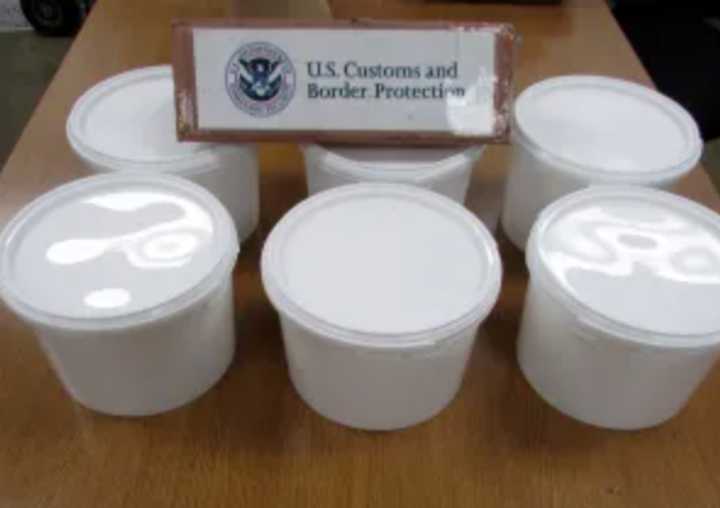$1.5M Drug Bust: 57 Pounds Of Ketamine Found In Toys, Frames At Philly Port
Philadelphia customs officials just caught a whopper, but it wasn’t fish.
Nearly 28 pounds of ketamine were discovered by CBP agents in a container that seemed to be fishing rods.
When CBP officials discovered nine pounds of ketamine in a toy box, they weren’t kidding around.
On Thursday, July 3, US Customs and Border Protection said that during several parcel inspections in late June, they found 57 pounds of ketamine hydrochloride, a deadly anesthetic frequently abused at raves and by sexual predators.
The drugs were being trafficked from Europe to South Florida, concealed within picture frames, fishing rods, toys, and other commonplace objects, and had a street worth of approximately $1.5 million.
A shipment from the Netherlands that was marked as fishing rods on its way to Miami was examined by CBP officials at the port of Philadelphia on June 21.
According to officials, instead, they discovered six tiny plastic buckets that held over 28 pounds of ketamine.
Four further packages from Germany that were headed to different addresses in Broward County, Florida, were intercepted by officers a few days later.
The drugs were concealed in vacuum-sealed packets that were placed inside boxes that were supposed to have picture frames and toys.
According to CBP, ketamine hydrochloride, a Schedule III banned drug, was detected in all five parcels.
Cleatus P. Hunt, Jr., the CBP Area Port Director in Philadelphia, stated that ketamine is a very dangerous anesthetic that can cause considerable harm to both abusers and innocent victims.
Customs and Border Protection personnel like nothing more than stopping the illegal substance from entering our neighborhoods.
The DEA claims that ketamine, which is also marketed as Special K, Donkey Dust, and Cat Killer, is used medicinally to numb pain and produce drowsiness in both humans and animals.
However, because of its psychedelic effects, it is taken without a prescription, frequently at clubs or parties. Sexual predators have also utilized it to render their victims helpless.
The inquiry is still ongoing, according to CBP.










